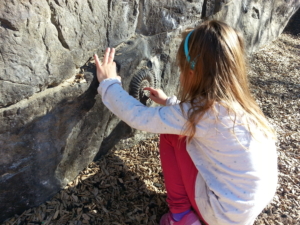What Young Kids Remember About Family Travel
For our family, travel is a mix of experiences, good and bad. We bond. We oooh. We aaah. We negotiate who sleeps where at bedtime. We fight over who gets to sit in the buggy. We weather meltdowns. And we never stop seeing new stuff.
Inevitably, however, Powerwoman and I ask ourselves: How much of all of these experiences will L and R remember?
It’s a question I’ve heard often—both from friends and foes. Those who share our commitment to family travel ask the (rhetorical) question in the context of how worthwhile the effort really is. Those who oppose it? They just blather on about how children only care about themselves, never the things they experience in the outside world.
This past week, on an assignment for a client (story coming soon!), I got to dig a little deeper into the issue during an interview with a child psychologist. And the answers shocked the hell out of me.
The expert, Dr. Michele Blume, basically said that, biologically speaking, kids don’t have the capacity for explicit memories until they reach 3 years old. She added that even after that, kids usually don’t retain more than “flashbulb memories” (memories of very brief snippets of an experience, individual moments) until after they turn 5.
Thankfully, before I nearly choked on my coffee at the notion that we’ve been going about it all wrong, Blume added that there’s more to memories than biology.
“What’s overlooked [in the case of kids and family travel] is the importance of implicit memory, the sensory experience,” said the psychologist, who is based in Hermosa Beach, Calif. “The sights, sounds, tastes and smells of being in a new place with mom and dad, interacting with the new environment and having fun as a family has an impact later on; affecting how they feel about themselves, how they feel about themselves in the world, their curiosity in new situations, and how they adapt to the world.”
Blume went on to say that far too many parents use family travel as a teaching experience—a situation that could overwhelm young kids. While sharing knowledge is important, she argues that moms and dads should make it a secondary aspect of a vacation, not the main event.
“Learning doesn’t have to be about the Eiffel Tower or something specific like that,” she noted. “When you ask them questions about what they’re seeing around them, it should be more about the experience of being there with mom and dad, together, and less about something [to which] they might not even be able to relate.”
Finally, Blume noted that the very best thing a parent can do for his or her child on a family trip is to make the new seem familiar.
“At a young age, children are learning about the world and how to regulate themselves in it,” she said. “Parents operate as an external modulator of their child’s nervous system. If parents can create constancy and predictability externally, then a child can take in the new environment because it seems safe to do that. Knowing your child and being attuned to [his or her] needs can go a long way to making [family travel] more fulfilling and enjoyable [for everyone involved].”
To what extent do you feel your kids have remembered family trips from their younger days?





I remember trips my parents took us on when I was young, probably around 3 or 4. I don’t remember specific details but vague memories. And my 5 year old son will bring up things we saw or did when he was 3 or 4 on trips, in a remember this mommy kind of way. Kids take it in. In a different way than adults but they definitely do!